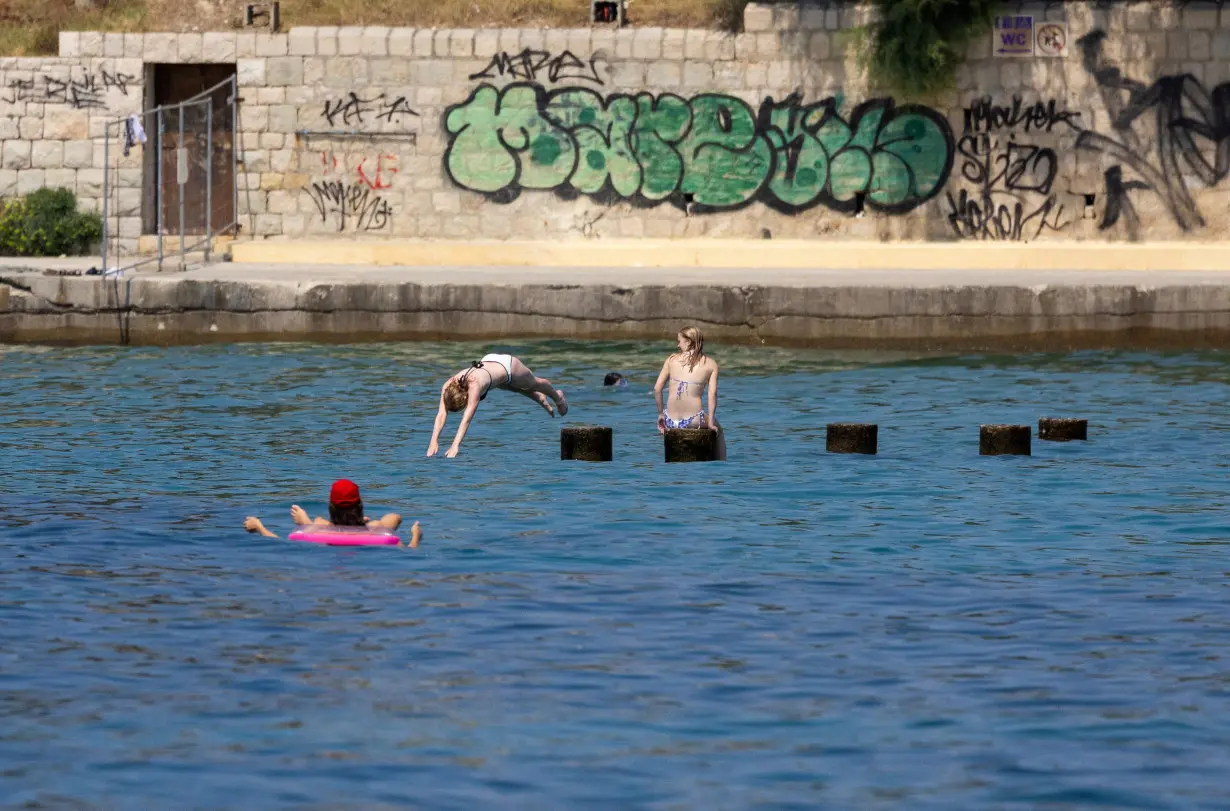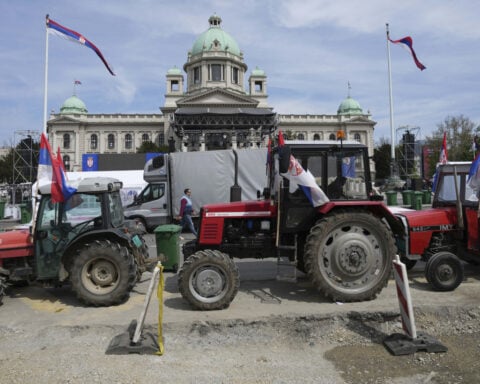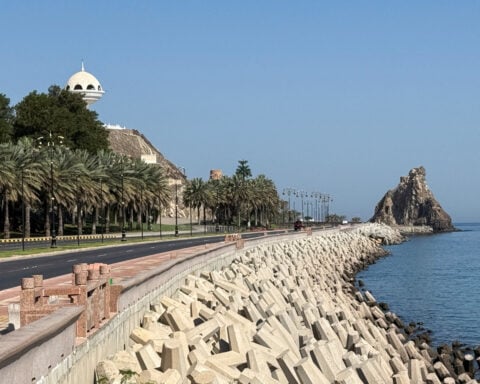SPLIT, Croatia (Reuters) - Tourists in their hundreds of thousands are seeking relief this week from Croatia's scorching heatwave in the Adriatic Sea, although water temperatures are also touching all-time highs.
Samira and Toska, both from Switzerland, are among an estimated 900,000 foreign tourists, according to tourist board statistics, currently holidaying in Croatia.
"We were in Italy last week and we thought it was warm there but here it’s even hotter...," said Toska, sitting on a beach outside the historic Adriatic city of Split. "We just go every 10 minutes into the water to refresh ourselves."
Daytime temperatures on land have risen above 40 degrees Celsius this week, while the sea temperature around the city of Dubrovnik, to the south of Split, hit an all-time record of 29.7 degrees Celsius on Monday.
Ivica Vilibic, an oceanographer at the Rudjer Boskovic Institute in Split, said the whole Adriatic was about 5 degrees warmer than the average for this time of year.
"There are different effects (from climate change). For example, there are species which like a warm ocean, as in the Red Sea. So there are lot of species that are already coming to the Adriatic, and more will come," he told Reuters.
"But there are also other species which are cold sea species, like shrimp, for example.... So basically, they will get into problems, they might disappear in a few decades, because the ocean will be too warm for them."
For now, however, the sea is a sanctuary for tourists.
"The water is amazing. The land is hot, it's a disaster," said Jasmin Babarovic from Bosnia. "I don't dare leave the water because of the high temperatures, and the sea is extra refreshing."
(Reporting by Antonio Bronic; Writing by Ivana Sekularac; Editing by Gareth Jones)

 Trump has begun another trade war. Here's a timeline of how we got here
Trump has begun another trade war. Here's a timeline of how we got here
 Canada's leader laments lost friendship with US in town that sheltered stranded Americans after 9/11
Canada's leader laments lost friendship with US in town that sheltered stranded Americans after 9/11
 Chinese EV giant BYD's fourth-quarter profit leaps 73%
Chinese EV giant BYD's fourth-quarter profit leaps 73%
 You're an American in another land? Prepare to talk about the why and how of Trump 2.0
You're an American in another land? Prepare to talk about the why and how of Trump 2.0
 Chalk talk: Star power, top teams and No. 5 seeds headline the women's March Madness Sweet 16
Chalk talk: Star power, top teams and No. 5 seeds headline the women's March Madness Sweet 16
 Purdue returns to Sweet 16 with 76-62 win over McNeese in March Madness
Purdue returns to Sweet 16 with 76-62 win over McNeese in March Madness







